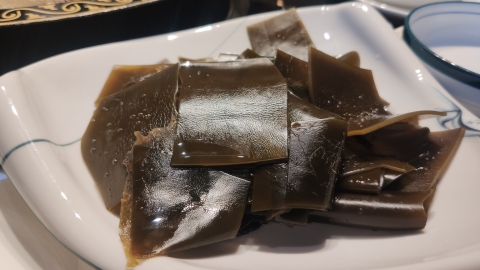Can crabs and kelp be eaten together?
Generally speaking, crabs and kelp can be consumed together, but moderation is important. Detailed analysis is as follows:

Crabs are rich in protein containing essential amino acids that are easily absorbed and utilized by the human body. They also contain zinc, selenium, copper, and other minerals beneficial to immune function and antioxidant activity. Crabs provide vitamin B12 and vitamin A, which support nervous system and vision health. Crab roe contains high levels of cholesterol and should be consumed in moderation. Kelp contains dietary fiber that promotes intestinal motility and helps prevent constipation. The iodine present in kelp is an important precursor for thyroid hormone synthesis and helps prevent goiter. Kelp is also rich in iodine, calcium, and potassium, which are beneficial for thyroid function and bone health.
The protein in crab combined with the dietary fiber in kelp helps enhance satiety and balance nutrient intake. The iodine in kelp can promote the metabolism and utilization of crab protein, while the minerals in crab aid in iodine absorption. However, moderation is key, as crabs are cold in nature and excessive consumption may lead to diarrhea or abdominal pain, especially in individuals with a cold constitution or weak spleen and stomach.
When deciding whether to consume crab and kelp together, one should consider individual physical condition and health needs. If there are any concerns or discomfort, it is advisable to consult a professional doctor or nutritionist to ensure dietary safety and health. In daily diet, appropriate food pairing and attention to individual body differences can help maintain good health.





